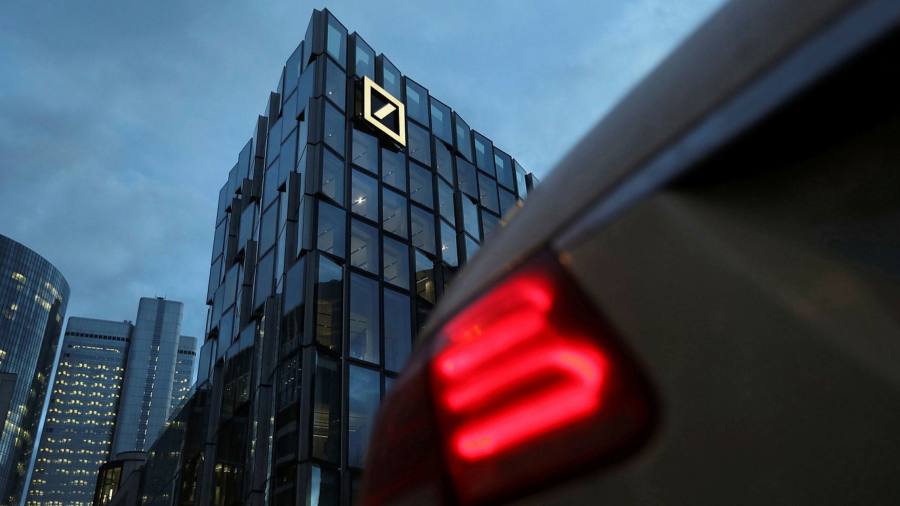
Deutsche Bank may have mis-sold foreign exchange derivatives to more than 50 companies in Spain, suggesting the scope of a scandal that has already led to the exit of two senior bankers is wider than previously thought, according to people familiar with the matter.
Germany’s biggest bank launched an internal probe last year after clients complained they were sold complex derivative products they did not understand.
The investigation, known within Deutsche Bank as Project Teal, was first revealed by the Financial Times earlier this year. At the time, the bank said that “a limited number of clients” were affected.
The bank is now examining the cases of between 50 and 100 companies that are potentially embroiled, according to people familiar with the matter, though it is unclear how many suffered financial losses.
J García-Carrión, Europe’s largest wine exporter, was paid more than €10m by Deutsche Bank to settle a dispute over losses the Spanish company suffered, the FT reported last month.
The widening scope of the probe was first reported earlier on Thursday by Bloomberg, which said that Ibiza-based Palladium Group, one of Spain’s biggest hotel chains, was also mis-sold currency products and is evaluating its options.
“We can confirm that we have suffered from a similar situation to J García-Carrión and are in a pre-litigation process in London,” Palladium said, without specifying the extent of any alleged losses or how many trades were involved.
In a statement Deutsche confirmed that an investigation into potential mis-selling was ongoing, but declined to comment on specific cases. “We follow up on any evidence and diligently look for any potential similar activity,” it added.
Project Teal has focused on the sale of hedges, swaps, derivatives and other complex financial products. The forex derivatives were pitched as a cheaper way to hedge currency exposure than traditional exchange-rate insurance.
According to people familiar with the matter, the investigation uncovered that corporate clients had been miscategorised under the Markets in Financial Instruments Directive (Mifid), an EU rule requiring banks to separate customers according to their level of financial sophistication.
The FT reported last month that the departures of two veteran Deutsche Bank executives was linked to the scandal. The lender announced in early June that Louise Kitchen, head of Deutsche’s asset wind-down unit, and Jonathan Tinker, co-head of global foreign exchange, were both stepping down and would leave the bank.
Two traders who were operationally in charge of the problematic activities have already left the bank.
Deutsche Bank is not the only lender in the spotlight over its foreign exchange sales practices. J García-Carrión is also in a legal battle with Goldman Sachs in the High Court in London over $6.2m of losses linked to exotic currency derivatives.
Separately, JGC has alleged that France’s BNP improperly conducted billions of euros worth of currency transactions that led to tens of millions in losses. BNP has said it complies with all regulatory obligations over the sale of derivatives and foreign exchange instruments.

